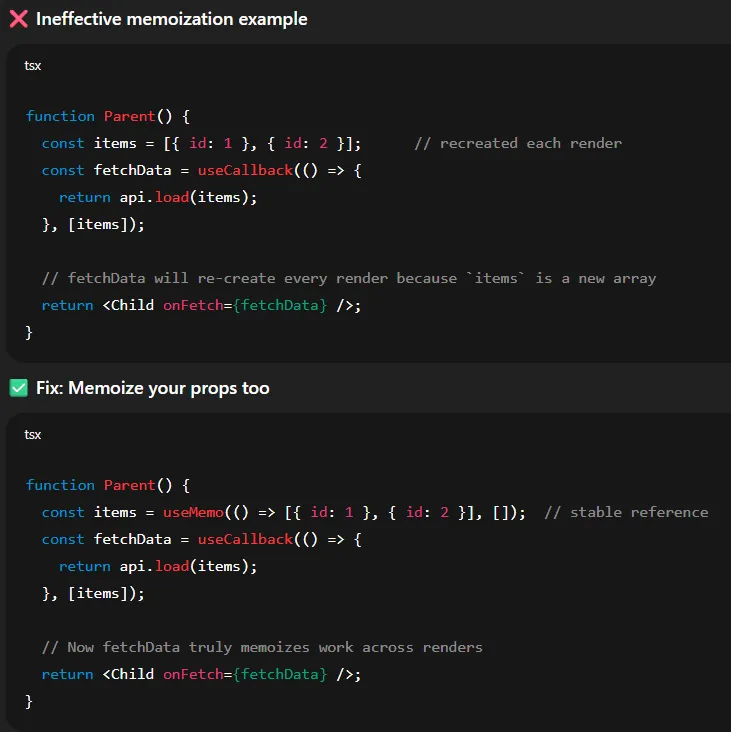When you memoize a computation or a function, the dependencies of useMemo/useCallback that are props of the component need to be optimized too. If the dependencies change, the component re-renders and the memoized computation runs again—meaning our optimization didn’t help at all.
React compares every prop in your component with its previous value using Object.is. Note that Object.is(3, 3) is true, but Object.is({}, {}) is false.
Solution:
❌ Ineffective memoization
function Parent() { const items = [{ id: 1 }, { id: 2 }]; // recreated each render const fetchData = useCallback(() => { return api.load(items); }, [items]);
// fetchData will re‐create every render because `items` is a new array return <Child onFetch={fetchData} />;}✅ Effective memoization
function Parent() { const items = [{ id: 1 }, { id: 2 }]; // stable reference const fetchData = useCallback(() => { return api.load(items); }, [items]);
// Now fetchData truly memoizes work across renders return <Child onFetch={fetchData} />;}Make sure props are memoized before passing them down. Otherwise, the memoized computation will be useless at best.
This is something React could fix by improving its compiler—which was recently introduced and is getting better every day.
References
This is a summary of what i learned by TkDodo’s new blog post
